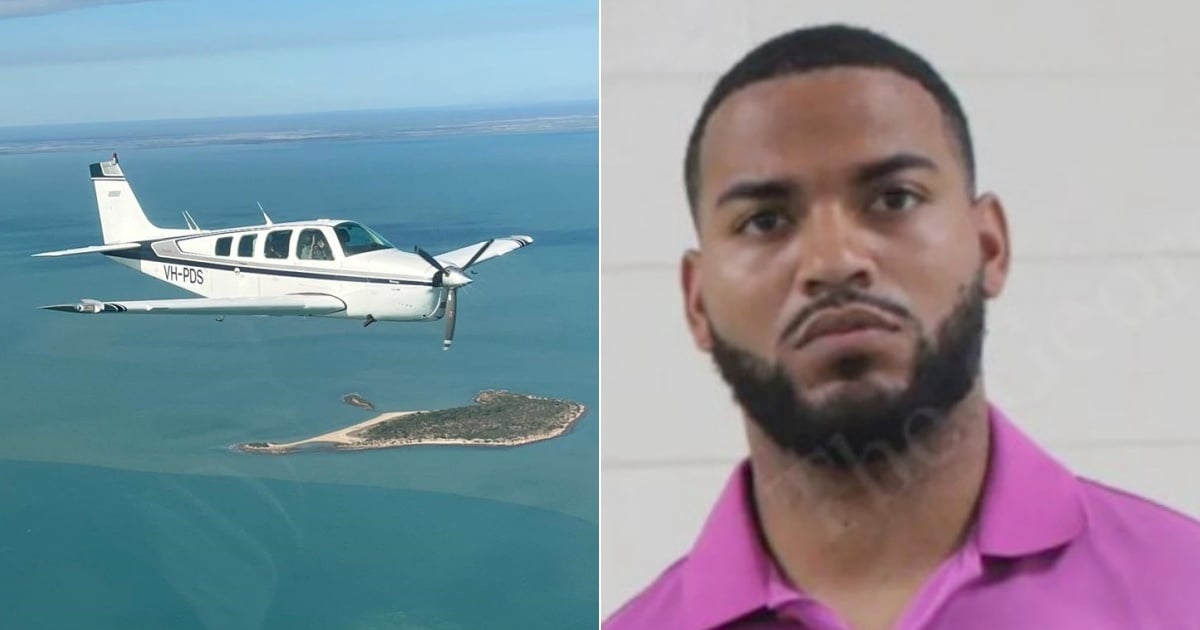Rufus Crane, a 27-year-old from Coconut Creek, Florida, has captured headlines with a story both astonishing and concerning. On Wednesday, Crane pled guilty in a federal court to the theft of a private aircraft in Georgia, which he then flew across multiple states without the necessary license, in a daring escapade that has shaken the U.S. civil aviation system.
Unauthorized Takeoff and a Risky Aerial Journey
On May 4, 2024, armed only with a student pilot certificate, Crane unlawfully entered a hangar at Perry Airport in Georgia. There, he took a Beechcraft Bonanza A-36, a high-performance single-engine plane. Despite lacking the required training and permissions, he managed to take off and navigate through the night skies to Waxhaw, North Carolina, landing at JAARS-Townsend Airport around 12:42 a.m.
His journey didn't end there. Just hours later, at 3:14 a.m. on May 5, he took off once more, this time heading south. He attempted to refuel in South Carolina before making his way back to Georgia. However, as he neared Perry around 5:47 a.m., dense fog made safe landing impossible.
Flying Without IFR Qualification
The situation escalated when Crane chose to continue flying despite the inclement weather that required Instrument Flight Rules (IFR) qualifications, which he did not possess. Faced with challenging conditions, he had to rely entirely on the plane's instruments rather than visual cues—a complex task meant for trained pilots. The fog forced him to divert to Cochran Municipal Airport in Georgia, where he refueled and returned the plane to Perry Airport by 11:01 a.m.
Aviation Safety Threat: Transponder Off
Throughout this hazardous flight, Crane kept the aircraft's transponder off, meaning the Bonanza A-36 was invisible to air traffic control. This decision meant the authorities were unaware of the plane's location, altitude, and speed, significantly heightening the risk of mid-air collisions and coordination failures in the airspace.
The Department of Justice emphasized the severity of Crane's actions in a statement: “During these night flights, he also kept the Bonanza’s transponder off, which meant the plane did not transmit signals to air traffic control for location, altitude, and speed data.”
Legal Repercussions and Charges
Rufus Crane faces charges of interstate transportation of stolen aircraft, a federal crime that carries a maximum penalty of ten years in prison, followed by three years of supervised release, and a fine up to $250,000. Judge Marc Treadwell will sentence him on September 17.
Federal and local authorities have strongly condemned Crane's reckless behavior. “By choosing to steal a single-engine aircraft and fly to North Carolina, landing at several regional airports along the way, the defendant endangered his own life and others', despite lacking full training or a pilot license,” stated Acting U.S. Attorney C. Shanelle Booker.
“The unauthorized theft and operation of an aircraft is not merely a property crime but a serious threat to public safety. Mr. Crane’s reckless actions endangered countless lives across several states,” asserted Captain James Jones of the Perry Police Department.
Joseph Harris, Special Agent in Charge at the Department of Transportation's Office of Inspector General, warned, “Situations like this can rapidly escalate when crucial aviation safety laws and regulations are blatantly ignored.”
Rufus Crane's case highlights how negligence, audacity, and regulatory gaps can lead to high-risk events threatening national security. Awaiting his sentencing, Crane now faces the full weight of federal law for an act that compromised private property and jeopardized airspace safety amid a year marked by numerous aviation incidents in the United States.
Key Questions on Aviation Safety and Legal Consequences
What are the legal penalties for stealing an aircraft?
The penalties for stealing an aircraft can include up to ten years in prison, three years of supervised release, and fines up to $250,000, as it is considered a federal crime.
Why is flying with the transponder off dangerous?
Flying with the transponder off is dangerous because it prevents air traffic control from tracking the aircraft's location, altitude, and speed, increasing the risk of collisions and miscoordination in airspace.
What is IFR and why is it important?
Instrument Flight Rules (IFR) are crucial for flying in poor visibility conditions, as they require pilots to rely on instruments and navigation systems rather than visual cues. Only trained pilots with IFR certification are permitted to fly under these rules.
